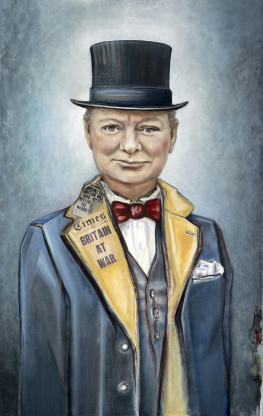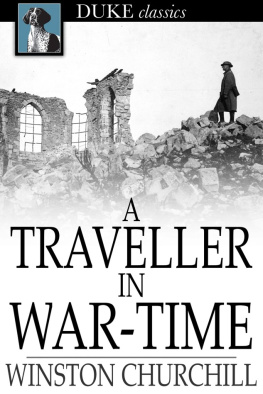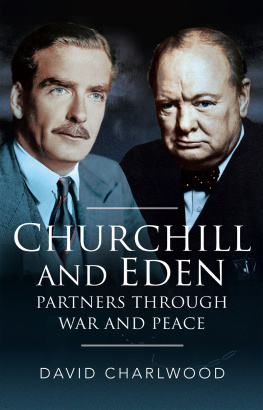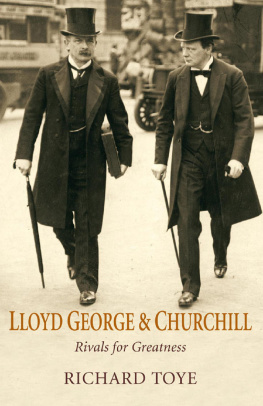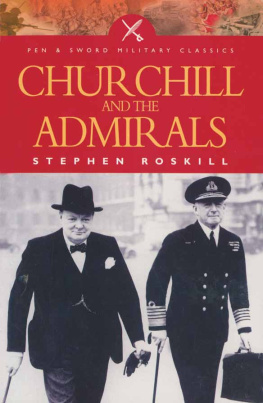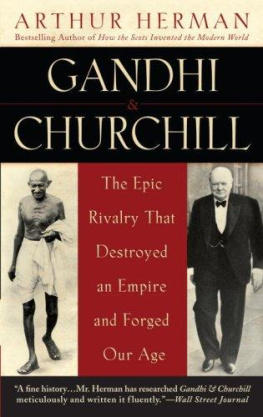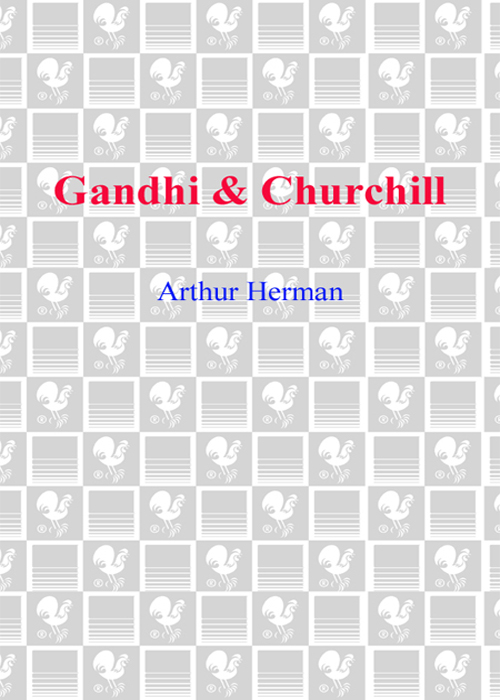
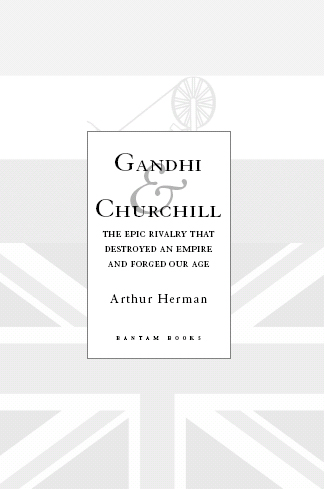
CONTENTS
To Beth, with all my love,
for her unfailing help and support.
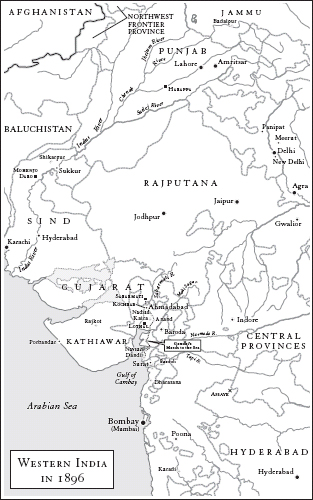
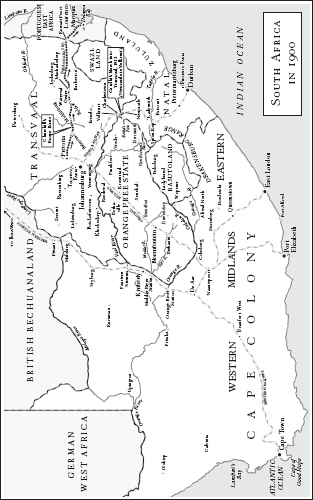
PROLOGUE
I see no being which lives in the world without violence.
MAHABHARATA
MUTINY. THE NEWS HAD SPREAD THROUGH the hot dusty streets of Cawnpore and its European quarters like a monsoon wind. The native sepoys or soldiers at the garrison at Meerut just outside Delhi had shot their British officers and were marching on the ancient Mughal capital. Other sepoys, it was said, were scrambling to join them. Cawnpores English families, ensconced in their comfortable bungalows and surrounded by native servants, felt uneasy. Between Calcutta to the southeast and Peshawar to the north, a distance of thirteen hundred miles, there was exactly one battalion of British troops of seven hundred men. Very suddenly, in a few short days in May 1857, British rule in India, which had seemed so stable and secure for the past half-century, found itself on the edge of the abyss.
One question burned in everyones mind. Would the sepoy regiments in Cawnpore remain loyal or join the rebels? One of those wondering was William Shepherd. He served in the garrisons Commissariat Office and had just moved his widowed sisters family to Cawnpore. Like many who worked for the British in India, Shepherd was of mixed race, half-Indian and half-English. Everyone in the station seemed to think something dreadful was about to happen.1 He knew that the small garrison town on the bank of the Ganges was weak and isolated, and that the native troops in Cawnpore outnumbered the whites by ten to one. If they mutinied, the nearest help would be more than fifty miles away in Lucknow, assuming the soldiers there remained loyal. Shepherd also sensed that he and other so-called half-castes, or anyone who worked with the British, would be in mortal danger if the Cawnpore sepoys joined the rebellion.
But would they? Shepherd certainly thought so. In an unguarded moment, some of them had revealed the depth of their resentment toward the British, and their paranoia. See what deep plots are being laid against us, the Cawnpore sepoys told him. They had already refused the new cartridges issued from the arsenal at Dum Dum for their Enfield rifles, which rumor said were smeared with pig grease so that any Muslim soldier would be polluted and any Hindu soldier would break his caste. It was fear of those same cartridges that had set off the mutiny in Meerut. Now the rumor was that their British officers were secretly mixing the commissariat flour with pig and cow bones, for the same purpose: to make them all badhurrum, or outcastes.
Shepherd knew this was a lie but did not dare to contradict them. But he did ask why they would wish to attack civilians and others like himself who had done them no harm. They gathered menacingly around him, shouting over and over: Suffun suffa! Suffun suffa! Enough is enough! It was time to wipe the slate clean. Time to drive the British out of India.
One veteran sepoy, with bristling mustache and piercing eyes, almost rushed at Shepherd.
Oh you are all one, all of the same breed, he cried. You are serpents, and not one of you shall be spared! That night Shepherd moved his family out of the city and into Cawnpores only entrenched position, the old dragoon hospital, to the west of town.2
There he found the mood had degenerated to hysteria. Europeans and Eurasians were scrambling to get their families inside the compound, unnerved by rumors of impending trouble and angry stares from the locals. Trunks, suitcases, valises, bundles, and boxes were piled in profusion. Children ran under foot while weary officers tried to maintain order and their wives and sisters sat exhausted in the heat. Native servants and ayahs crouched fearfully in the corner. The hospital overflowed with peopleof every color, sect, or profession, an officer remembered later, all in terror of the imaginary foe.3
But Major-General Hugh Wheeler, commander of the garrison, was still confident. Wheeler was sixty-seven. He had been born and raised in India; even his wife was Indian. He thought he knew his sepoys as well as anyone did, and like most old-school British officers, he spoke fluent Hindustani. On May 18, even as panicky whites were pouring into the hospital and laborers were put to work building a four-foot mud wall around it, Wheeler was writing to officials in Calcutta, All is well in Cawnpore.4
Besides, if any real trouble did break out, Wheeler knew he could count on the support of the local raja of Bithur. The raja, generally known as Nana Sahib, was one of the literally hundreds of local Indian princes who kept their independence from the British East India Company and still governed more than half of India. Nana Sahib was not one of the great princes like the nizam of Hyderabad or the maharaja of Mysore, who between them ruled more territory than France and Germany put together. But he was wealthy, well spoken, and at thirty-five years old in the prime of life. He and Wheeler had dined together; played billiards and hunted tigers together. Nana Sahib belonged to the same Hindu caste as Wheelers wife. There was no Indian Wheeler trusted more. So when the raja appeared at the end of May with five hundred troops and cavalry dressed in glittering breastplates and helmets and flowing robes, to pledge his support to the British, Wheeler was so grateful he turned the garrisons treasury over to the prince for safekeeping.
It was a fatal mistake. After Nana Sahibs father died in 1851, the government in Calcutta had decided in its infinite wisdom to cut off the rajas pension. Nana Sahib appealed to the East India Companys directors in Leadenhall Street in London; they refused to interfere. In 1857 Nana Sahib faced total ruin.5 Behind his sleek demeanor Nana Sahib hated the British, and he was already scheming to become the sepoys leader.
On the warm night of June 4 Shepherd and his family were sleeping out on the hospitals veranda when a commotion woke him up. An anxious crowd of whites had gathered. Shepherd asked what was wrong.
Someone hissed, Listen! and pointed in the direction of the tents of the native Second Light Cavalry. In the predawn blackness Shepherd could hear the sounds of men saddling horses. There were cries and shouts. Then a sudden blaze of light split the darkness.
The native troopers had set the regimental riding masters house on fire and cut down their senior native officer, or rissaldar-major, who refused to join them. The next morning he was brought back still alive to the hospital enclave, his body covered with saber wounds. He died in agony a few days later. By then another body had been discovered, that of Mr. Murphy of the East India Railway, with three bullets in his head. On June 6 the mutineers, with Nana Sahib at their head, set up cannon around the enclave, while others ran riot through the city and shot any remaining Europeans or native Christians they found. The siege of Cawnpore had begun.6
It would last for eighteen terrible days. More than nine hundred people, men, women, and children, Europeans and Indians, were jammed into the hospital enclosure and its two brick buildings, one of which had only a thatched roof. They had no way to reach the garrison at Lucknow, who were about to be besieged themselves. Everyone who volunteered to try to sneak out to find help (including eventually William Shepherd) was either killed or captured. The Cawnpore garrisonin fact, not even a third were soldierswas critically short of food, water, and ammunition, and protected by only a shallow trench and the four-foot mud wall around the main building. Cannonballs swept down on the helpless crowd night and day.
Next page







